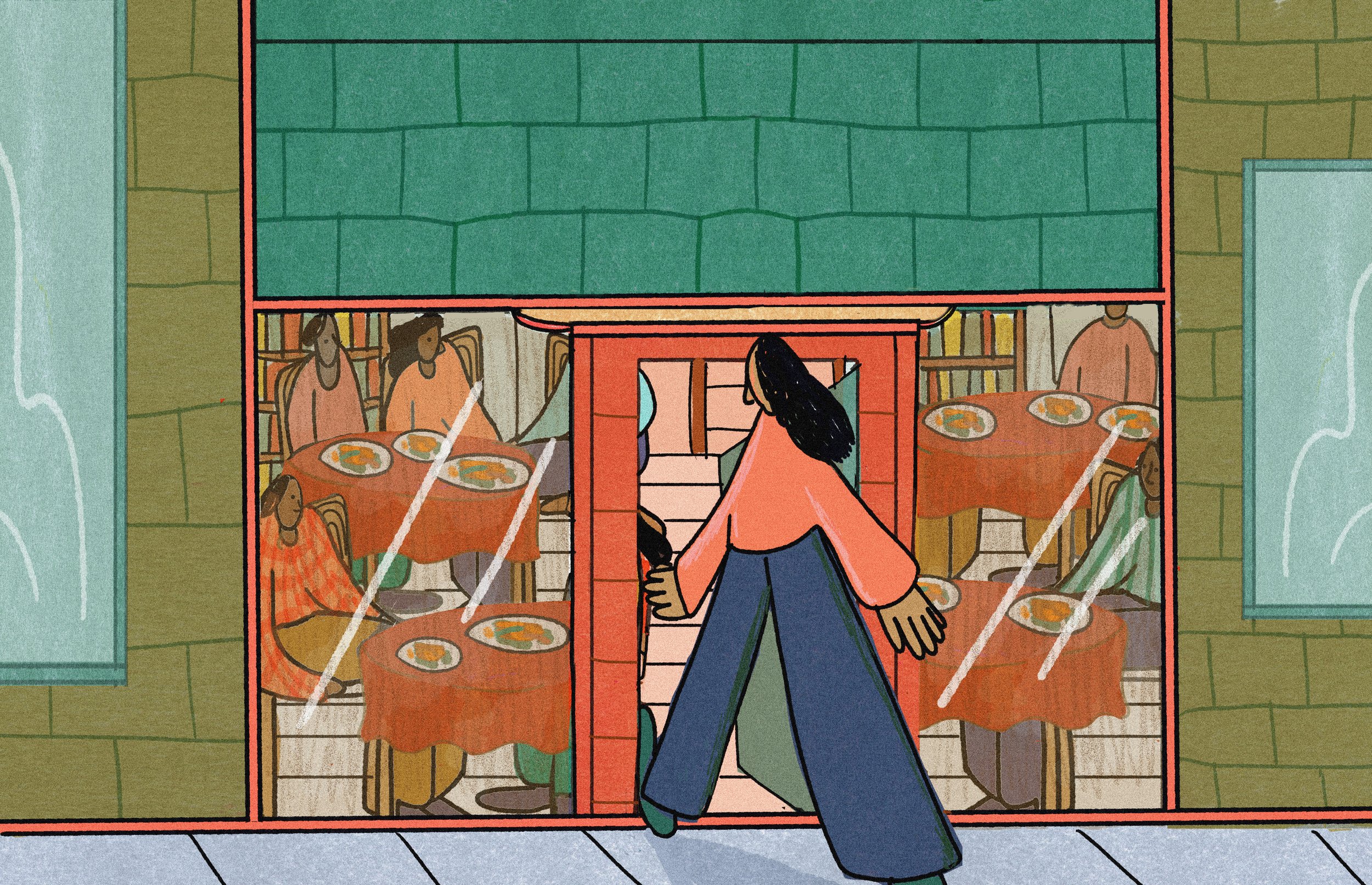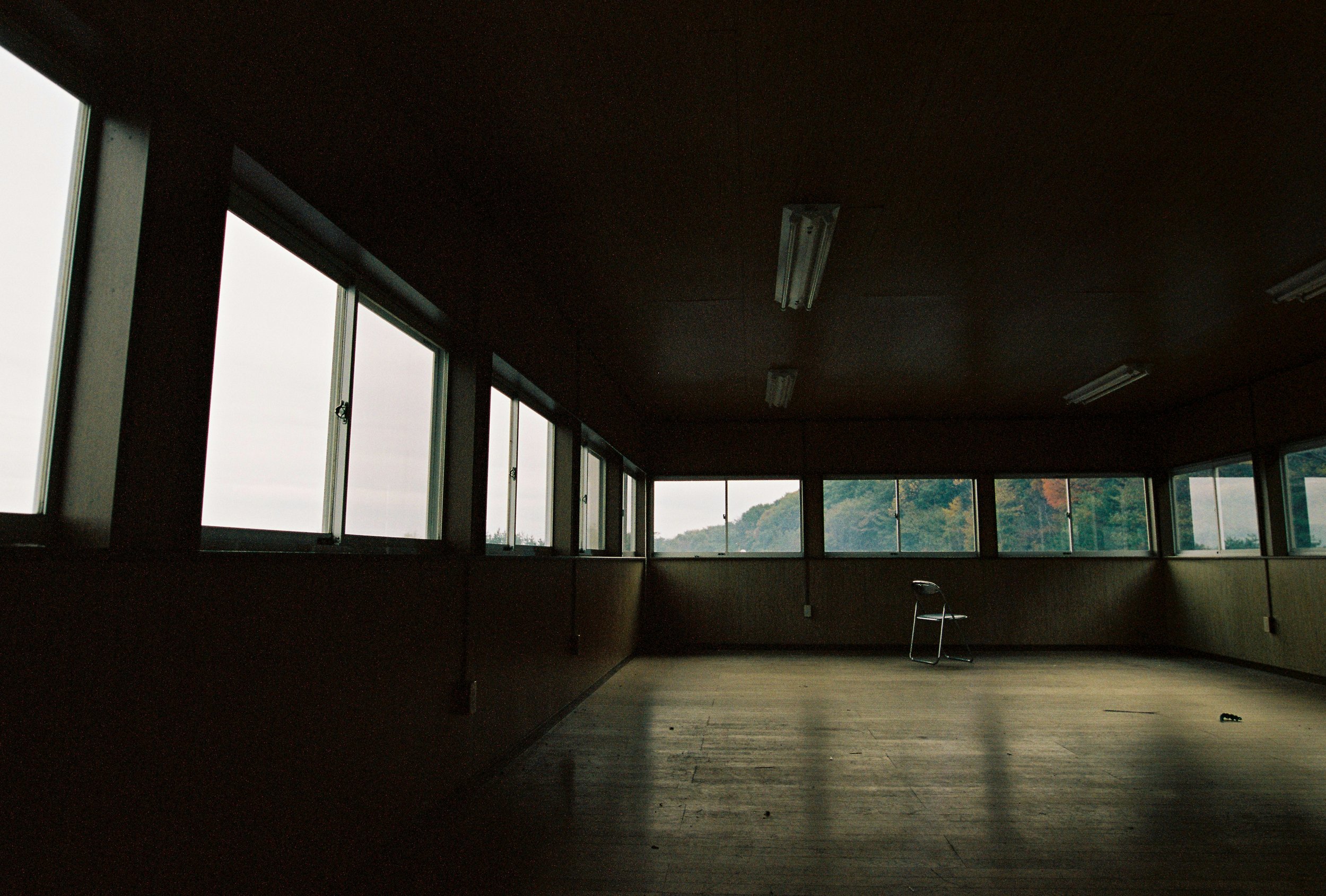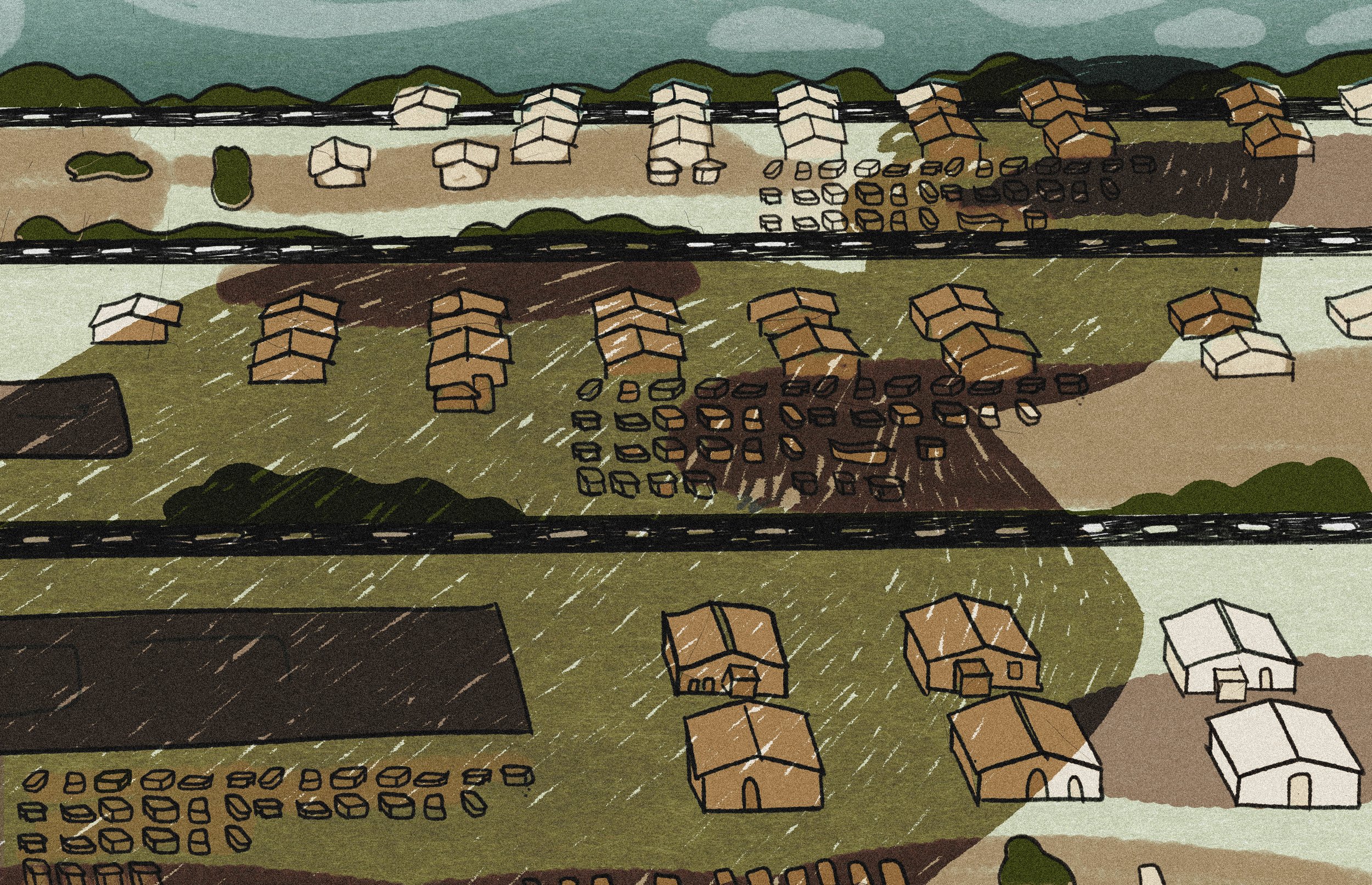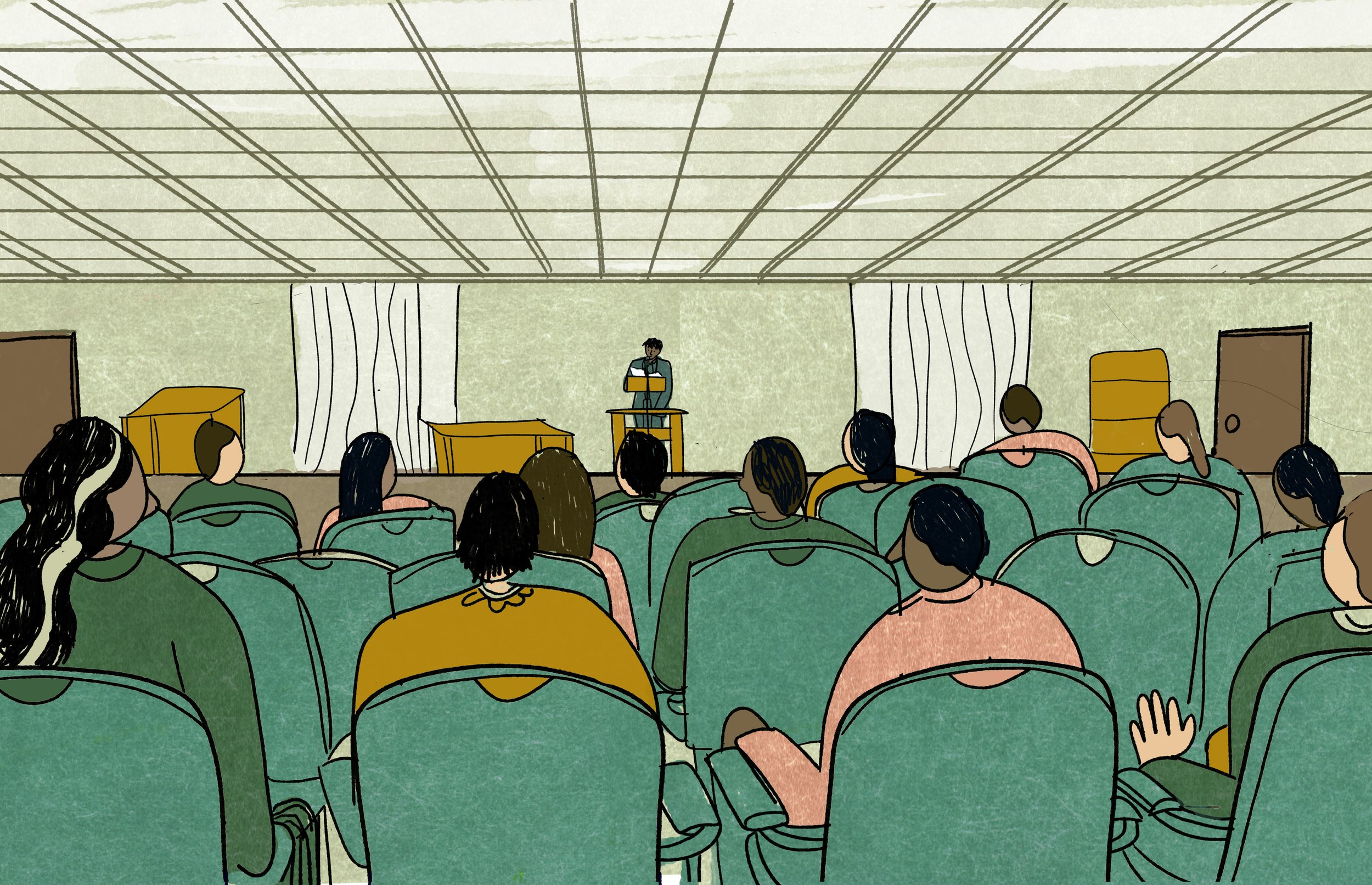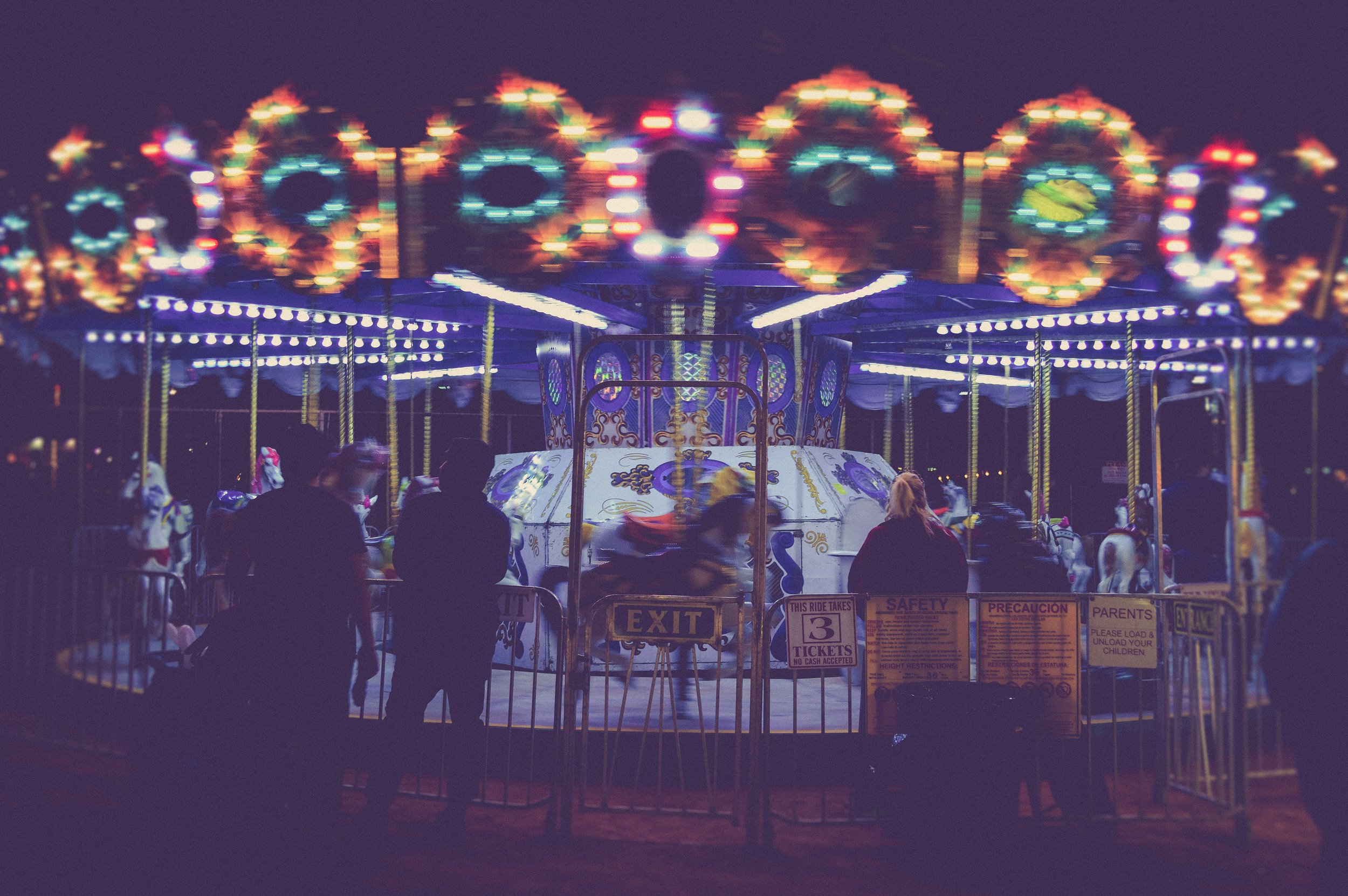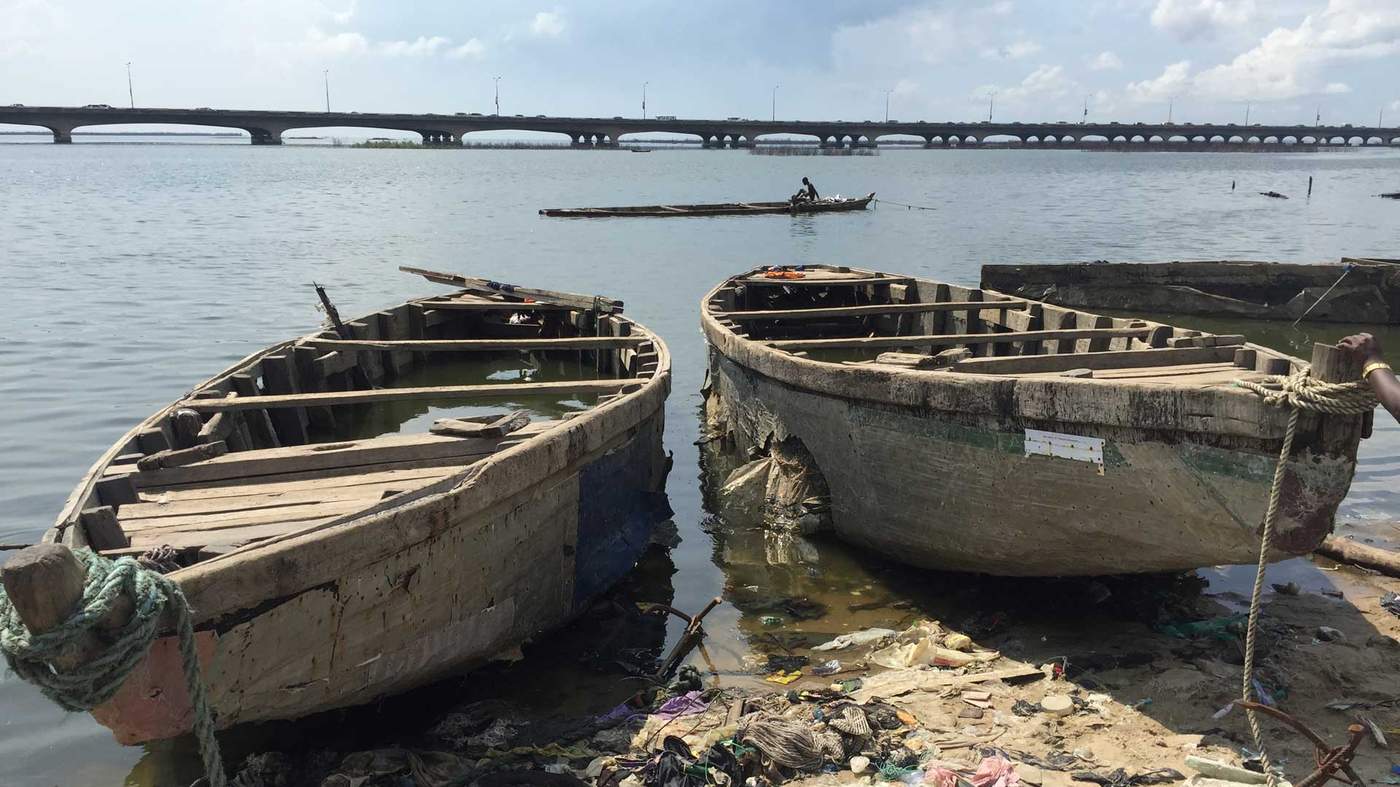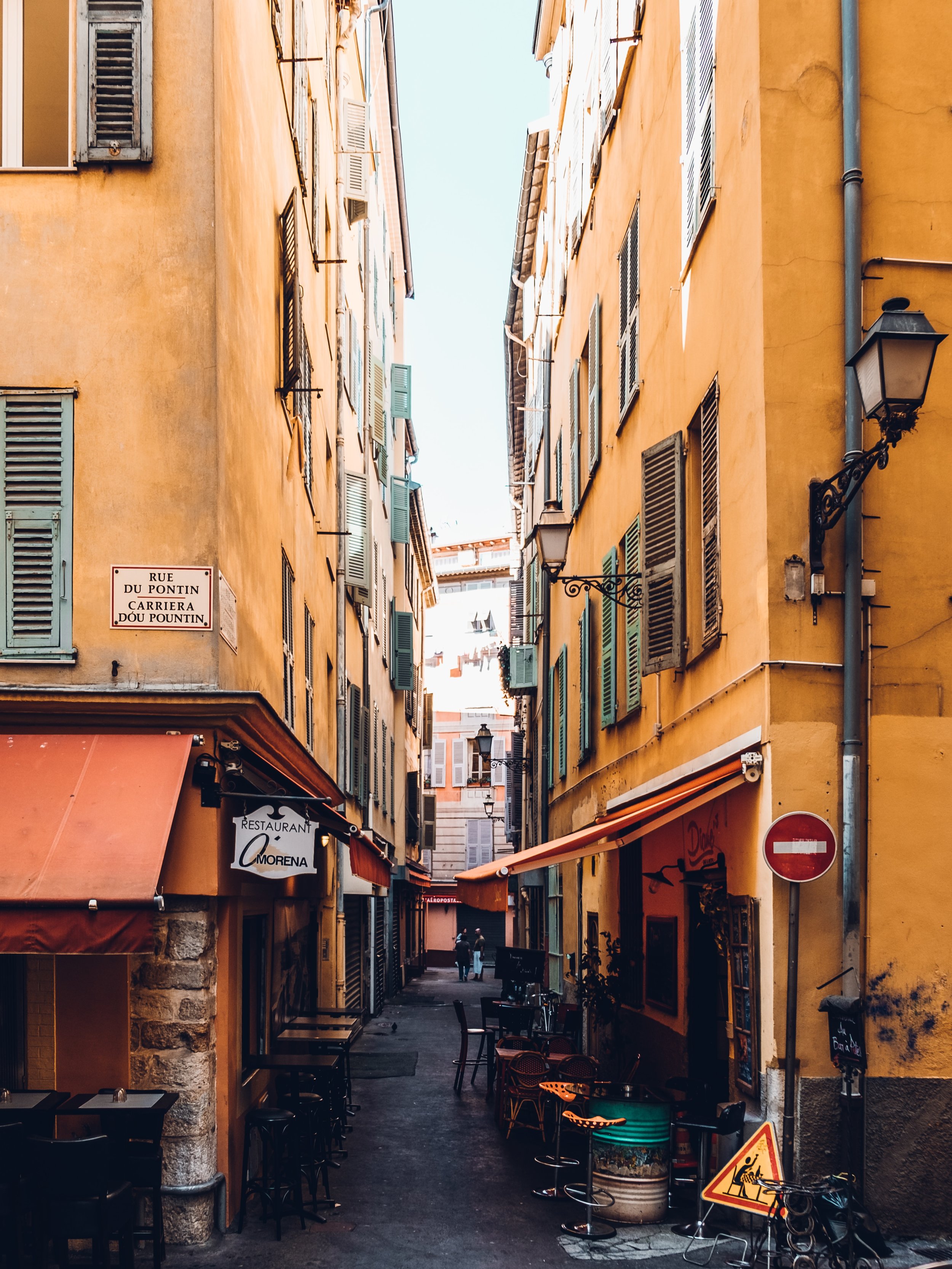Recycling in Paradise

Yi-Ling Liu spent one humid summer in Taipei reporting, studying Chinese literature and cycling around the city. She became fascinated by the city’s garbage trucks, and wrote this meditation on the Taiwanese recycling system, communities in flux, and letting go.
That summer in Taipei, clinging to routine, we became suckers for ritual. Every morning started the same way: wake to stream of subtropical sunlight through the curtains, vocab skim with breakfast, U-bike ride through the palm-lined streets of the National Taiwan University campus. During lunch break, we crossed the street to eat at our favorite vendors. Alex got two boiled eggs and a yogurt at Seven-Eleven; Franco ate religiously at the self-serve buffet of the Girl’s Dorm cafeteria; J.T. went to the same Sichuanese noodle stall, refusing offers to go anywhere else. Late afternoon, the last thunderclouds rolled out, throngs of scooters cruised home, and we walked back to the apartment complex where we lived, earnestly named Taipei Paradise. On his way home, Michael bought a CC Lemon — a saccharine, fizzy lemonade — and kept the empty bottle. By the end of the summer, he had rows of CC Lemons lined up on his desk, as if he were a castaway etching marks into a stone wall, tracking the days of his existence.
Aside from our strange fixation with routine, we had little in common with each other. We were a culturally assorted group of college and graduate students (some Brits, Koreans, New Zealanders, a smattering of Singaporeans and a handful of Americans), with an arbitrary array of interests (contemporary art, 1920s Shanghainese history, cross-straits military policy), drawn together by the shared decision to spend the summer memorizing Chinese sentence structures for six hours a day at what could only be understood as adult summer camp.
The phrase “adult summer camp” was what my new friend J.T. used to justify his Sichuanese noodle bowl routine. Every day at noon, J.T. would walk out alone straight to the noodle vendor with an unshakeable sense of purpose. “You gotta do some of the same shit every day to get through,” he explained. “Because you realize that it’s gonna be like this for a while. Weird, perpetual adult summer camp.” JT was twenty-eight; he was already deep into his “summer camp” years, by which I assumed he meant not simply our language program, but the lonely and nebulous period of twenty-something, when at any given point of any given day, nobody would know or care where we were, or what we were doing with our lives.
Photo courtesy of Yi-Ling Liu
We were like the floating, leaf-shaped island of Taiwan itself, in limbo, pseudo-independent and unsure of its place in the world. “It doesn’t have a definite identity,” the Taiwanese film director Ang Lee once said of his hometown, an island unrecognized by the United Nations and subject to the whims of the American government and the Chinese Communist Party. “Everything is undecided.” This was for an interview on his blockbuster Life of Pi, which depicts the story of a young Indian man who survives a shipwreck and lives adrift on a lifeboat at sea, shot almost entirely in Taiwan.
Walking through Gongguan after dinner indeed felt like walking through a film set, straight out of a scene from Blade Runner, all blue-tinged and mist-filled, soft neon lights, chrome façades and 80s fonts. “Like a retro-futuristic film set,” specified J.T after I pointed this out to him. If futurism, a later Wikipedia search that night revealed to me, is the anticipation of what will come, retro-futurism is a remembrance of that anticipation. There was an uncanniness about the Taipei streetscape that created a kind of pre-emptive nostalgia — a yearning for something that I had never experienced and yet felt like I had. A man in an ultramarine Iverson basketball jersey hacked away at the carcass of a pig with a butcher’s knife at the wet market stall. The whinny tune of a Chinese opera number followed a 2005 Gwen Stefani hit. Walking in Taipei in the early evening felt like I had a pair of noise-cancelling headphones on, insulated from the rest of the world. At dusk, the sky turned a particular shade of blue — the deep, elusive blue of a broken television screen or of the horizon. It was as if the city, having been in a state of anticipation for a future on hold, for too long, had refused to let go but also refused to move forward and so it gave up and turned into itself.
Photo courtesy of Yi-Ling Liu
*
We clung not simply to routine, but more specifically to what the Taiwanese call 小確幸, translated in English as “small, certain pleasures.” According to the translation app on my phone, this refers to anything from “a cold beer after a hard workout or a serendipitous find at a second-hand store.” This phrase, taken from a Haruki Murakami essay, which was in turn borrowed from a short story by Raymond Carver, “A Small, Good Thing,” was popularized among young, disillusioned Taiwanese faced with unstable employment opportunities and political limits dictated by forces outside of their control. Faced with a future that was contingent, the only certainties, they decided, would come from small, good things. Enforced simplicities.
During those two months, I inherited a whole array of miniature pleasures. I developed a strange love for kitchenware: ergonomic tea strainers, glass cookie jars, iron-wrought pans of the perfect weight and heft. Like other young Taiwanese, I frequented the night markets to sample bite-sized offerings: Boba tea with multi-colored bubbles, sliced crab apples dipped in brown sugar, oyster omelettes in disposable paper containers. I became obsessed with digital “Stickers,” the kitschy images that one could send in lieu of texts through Taiwan’s messaging app Line. More sophisticated than your average emoji, Line stickers tapped into the Japanese concept of kimo-kawaii (a combination of kawaii, cuteness, and kimo, the dark and despairing).
We were, or at least I was, not only trying to ground ourselves in a world in flux, but also trying to overcome a persistent sense of loss. Friendships I perceived as long-lasting were revealing themselves to be oblique and casual. Communities that I had woven around me were fraying at the edges. Feelings that I had devoured greedily as my own taken away from me. They were small losses, but they were frequent and recurring, as if the ground beneath my feet was constantly shifting, and the things that I clutched onto most tightly slipping through my fingers into the cracks. So we turned to the CC Lemons, the stickers and the kitchenware; we turned to the abundant and tangible pleasures that we could find solace in, that we could tie to a chain, encase in a locket and wear around our necks like lucky totems.
“There was something so satisfying about copying out Chinese characters — more intimate and labyrinthine than the English alphabet — again and again until they were familiar to me, like bones of a lover’s spine.”
Take, for example, the loss of this feeling: Sophomore spring, New Haven. Curled up under the blankets next to him, talking under the glow of his bedside lamp, I feel rich, and generous off his presence, feel like I have an excess joy that I don’t know what to do with, an overstock of happiness stored in a warehouse somewhere like new TVs and that I am Oprah and I want to parcel them out to the world.
Two months later, a dry summer in Santa Fe, that feeling — scaffolding carefully constructed over the course of one year — is stripped away in one morning.
I tried looking for it again, glimpses of that first, rich, Oprah satisfaction. A year later, after a dinner date, I found myself lying in bed with a different person, again rattling off incoherent thoughts with complete candor, palm resting on the concave of her lower back. But after that night, we never spoke like that again. We had an unstated, mutual understanding: there was no point trying to build scaffolding that would simply fall.
As I fell asleep that night, I thought of the baker at the end of Carver’s story “A Small Good Thing,” sitting with a grieving husband and wife under the fluorescent lights of his bakery the night after their son died. He served them warm cinnamon rolls straight out of the oven, the icing still running. In the grand scheme of my life, I knew my losses had been small. Mini-tragedies. Grief on training wheels. When would the day come that I would need somebody to bake me a tray of hot cinnamon rolls, fresh out of the oven, with icing dripping off the sides? “It’s good to eat something,” the baker said to a couple, in response to a loss that I cannot begin to understand. “There’s more. Eat up. Eat all you want. There’s all the rolls in the world in here.”
When I woke up the next morning, I felt as if a hand from the New Mexican desert had reached into my bedroom through the windows and touched me. I felt as if I had been, and would be alone for years. So I gave up, and turned into myself.
*
Every night in Taipei ended the same way: sitting by my desk writing lines of Chinese into the pages of my notebook. There was something so satisfying about copying out Chinese characters — more intimate and labyrinthine than the English alphabet — again and again until they were familiar to me, like bones of a lover’s spine.
Photo courtesy of Yi-Ling Liu
Around 9 o’clock, the tune of Beethoven’s Für Elise would come through the windows, announcing the arrival of the garbage trucks. The people of our neighborhood — college students, old grandmothers, young children — would trickle out of their apartments and gather by the alleyway openings, lugging bright blue garbage bags, armfuls of bottles and cans, and buckets of kitchen scraps. One by one, under the glow of the street lamps, they would line up and toss their bags into the back of the trucks, separating the trash into three categories — general refuse, recyclables and kitchen waste. Afterward, the trucks would drive off to a recycling center somewhere in the Northern Taiwanese countryside.
Our truck was only one of four thousand. The same routine of disposal, this systematic and collective practice of throwing things away, took place all across the island. This perplexed me, that there was an entire system in place that revolved around disposal. It was an act of letting go that was deliberate and methodical, an active and almost festive act of losing, antithetical to how I functioned as a person. I liked the fixed and forever; I liked to collect things and count them greedily; I liked to stockpile mementos and stash them away for the sole purpose of long-term preservation. I held fast to memories and hoarded them in my pockets like candy or Monopoly money or small gems of quartz, rose and amethyst.
As I sat by my desk, copying out character after character into my notebook, in hopes of committing them to memory, I thought of the lines of poetry I read that summer, the day after I left Santa Fe, from the book Bluets by Maggie Nelson. “I don’t want to displace my memories of love, nor embalm them, nor exalt them,” the lines read. That hot and dry summer, that was exactly what I wanted to do: to embalm and exalt. I never thought that I would take the memories and old sensations that I clung to — the warmth after our first winter run by the train tracks, the laughs shared over plates of Yorkside chicken parm, the weight and heft of his palm on mine as we walked down to take in the cherry blossoms at Wooster Square — to take each one and throw them away. “I think I would like it best if my writing could empty me further of them,” the poem continued. “So that I might become a better vessel for new blue things.” I never thought to gather each piece in a bright blue plastic bag, place them in the back of a garbage truck and let them go.
*
One weekend during the program, a dozen of us decided to get together to celebrate July 4th. Most of us were not American but we were always looking for reason to celebrate, and there was no better way to do so than with a raucous ceremony of beer and barbecue.
We gathered at Cathy and Alissa’s place on the 10th floor of Taipei Paradise. In the afternoon, we trickled into the apartment, bearing each of our contributions, and began to prep for our production. Luke hauled over five pounds of minced beef from the local butcher, which we fashioned into burger patties with disposable chopsticks. I brought two tubs of black sesame ice-cream and a mini-keg of beer. Out on the small balcony, we took turns trying to get a fire started on the grill with newspaper scraps. In the living room, Ali was sitting on the floor, mixing leftover oatmeal with eggs and sugar in a large wok, in hopes of transforming the batter into an all-American apple crumble. In the kitchen, Josh was boiling a squid.
“I imagined myself at the recycling center, rummaging through the mounds of thrown-away things, rooting through millions of grains of sand to retrieve lost gems.”
By five o’clock, we still couldn’t get the grill started. It had just rained and the grill was a flimsy, portable one from the grocery store near Da’an station. “Check it out!” Tripp called from the balcony, brandishing a plastic lighter in hand. We paused and turned our attention to Tripp the amateur magician, covered in soot, coaxing feeble sparks into a fire. Half a second later, the flames withered and the coals waned from ember to blue to black.
For some reason, as the sun began to set, and we got hungrier and hungrier, it felt like everything was at stake. If the coals did not spark we would lose our cornerstone dish, the minced beef burgers, and if we didn’t have the burgers, the feast would fall apart. If the grill did not work, nothing would. And we wanted it to work so badly. This needed to be a feast — the perfect production, the ultimate abroad experience, one that we would talk about for years. The Feast of the Summer. That Time We Celebrated July 4th in Taiwan. That Time We Got the Grill Going, Despite All Odds.
But we were working with limited tools; everything was provisional and makeshift. The coals would not spark, so we ended up frying the burgers in woks, like a stir-fry dish. The apple crumble fell to pieces on first touch of the spoon, but we ate it all anyway. We finished the keg. Later, we would sweep the floors of evidence of our feast, gather the plates and leftover patties and throw them away. None of it would be embalmed. None of it would last. But for a moment, if only for a moment, curled up on the couch, cramped together in that small, sparsely furnished apartment, in the company of people that I had known for two weeks, would lose touch with after two months and forget the names of in two years, I felt full, rich and nourished.
I imagined us tomorrow, all of us — the people of Taipei Paradise, of Shida district, of the island of Taiwan — bathed in the glow of the street lamps, lining up and loading our plastic bags, one by one, into the backs of the trucks. The last bag is loaded, and each piece we decided to throw away shuttled off to a recycling center somewhere in the Northern Taiwanese countryside. At dawn, the sky in the countryside is a mist. I imagined myself at the recycling center, rummaging through the mounds of thrown-away things, rooting through millions of grains of sand to retrieve lost gems.
Perhaps I will find them again — soda bottle cap refashioned into the wheel of a desk chair, an old wok of once perfect weight and heft remolded into a metal railing; pages of a used notebook pressed together, dyed and reprocessed into the fresh pages of a new one. When I do find them, I will feel the same way I do when they come back to me — hazier versions of that original feeling of first love. Glimpses of what was lost, returning to me with a kind of alienated majesty, hinting at the possibility that it might be salvaged. And if I do not find them again, if I never find them again, perhaps somebody else will. I imagined our burger patties, composted into a mound of fresh, ebony soil, fertilizing a bed of orchids in somebody’s garden somewhere far away.
ABOUT THE AUTHOR
Photo by Jennifer Lu
Yi-Ling Liu is a writer based in Beijing, covering technology, culture and the Chinese internet ecosystem. Previously, she was an Overseas Press Club Fellow at the Hong Kong bureau of the Associated Press. She has written for Foreign Policy Magazine, Guernica Magazine, The Los Angeles Review of Books, Popula and SupChina.
Her greatest joy comes from bringing people together — be it through the stories, good food or summer camps. You can find her on Instagram and Twitter.
Header photo by Martin Manullang





